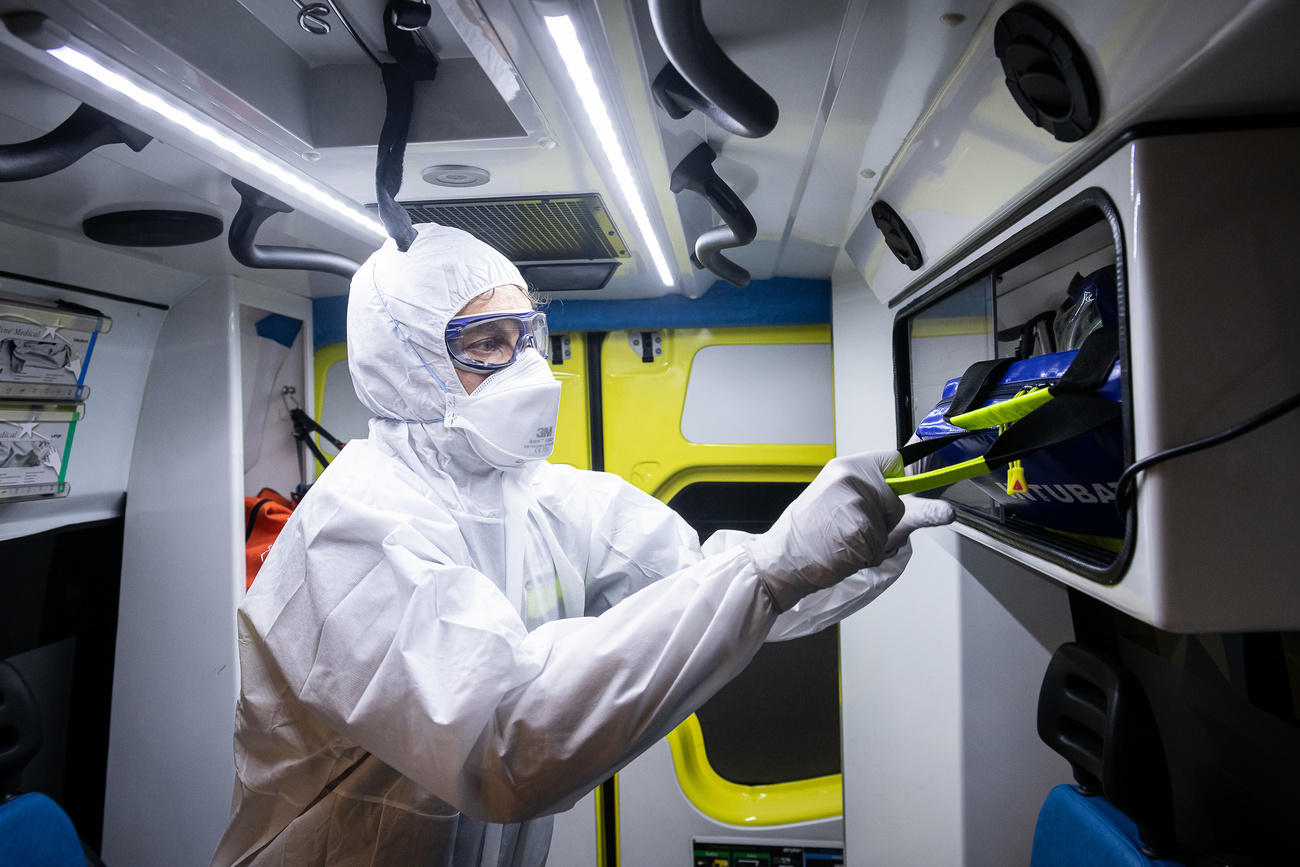
Health detectives deployed in fight against coronavirus

To slow the spread of Covid-19, all those who have been in close contact with a contaminated person must be tracked down. The Swiss authorities have entrusted this detective work to a handful of experts.
As the focus is turning towards the cancellation of big events, these experts are doing a less publicised but equally vital job. It involves reconstructing the chain of contamination, which is known in medical jargon as “contact tracing”. The aim is to find out whether an infected person has already infected others, as Daniel Koch, head of the Communicable Diseases Section of the Federal Office of Public Health told Swiss television SRFExternal link.

More
Switzerland bans major public events to slow spread of virus
Home quarantine
The epidemiological investigation starts with an interview of the patient, asking him or her to list all persons with whom they have been in close contact in the two days preceding the onset of the first symptoms. People with whom the patient has interacted with for at least 15 minutes at a distance of less than two metres are considered to be at high risk of infection, Dr. Thomas Hasler of the University of Zurich’s Institute of Epidemiology told swissinfo.ch.
The investigation may involve dozens of people, depending on the habits and mobility of the infected person. In France, one of the patients diagnosed as positive for coronavirus gave a list of 60 names.
Once identified, these people are contacted and informed. Those who present a high risk of infection are asked to stay at home and contact the authorities if symptoms appear. People who live with this high-risk group must move away temporarily, Brian Martin, a cantonal doctor in Zurich, told the daily Neue Zürcher ZeitungExternal link. The quarantine lasts 14 days.
If it is a group of people who have to be quarantined – for example, those who were on the same plane or bus as the patient – the scenario is different. In this case, the authorities provide a specific place to stay.
The people least at risk can leave their homes, but they must monitor their body temperature and report any changes immediately.
One of the difficulties with this approach is that it is not always possible to identify all the people who have come into close contact with the patient, especially if he or she has taken public transport, or taken part in a mass demonstration, Hasler adds.
Training new “detectives”
Contact tracing is not new and is part of the regular activities of the cantonal doctors’ offices. For example, these investigations are carried out when a person tests positive for the measles virus.
Epidemiological investigations follow standardised World Health Organisation protocolsExternal link. At the international level, these have also been used during other epidemics, such as SARS in 2002-2003 or Ebola in 2014.
In canton Zurich, 17 “detectives” were operational by mid-February, according to the NZZ. To cope with the current spread of Covid-19, the health authorities are training new experts among the specialist staff at the University Hospital of Zurich, the Centre for Travel Medicine and the Lung League.
However, if the virus were to infect a large number of people and spread widely like a typical seasonal flu, tracing contact would no longer make sense. It would simply become impossible to trace all potential contagions.

In compliance with the JTI standards
More: SWI swissinfo.ch certified by the Journalism Trust Initiative





























You can find an overview of ongoing debates with our journalists here . Please join us!
If you want to start a conversation about a topic raised in this article or want to report factual errors, email us at english@swissinfo.ch.